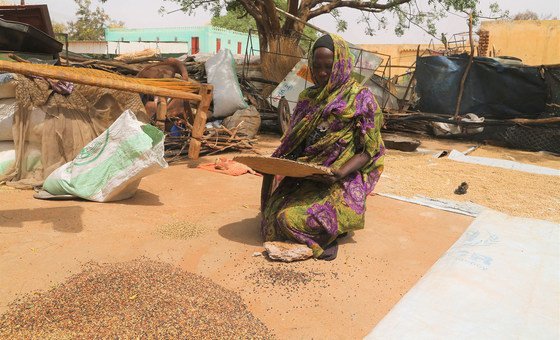Displaced people in Darfur are receiving Sorghum provided by the World Food Programme.
With the conflict between rival militaries in Sudan entering its third month, the people of Darfur are “trapped in a living nightmare”, the UN’s top aid official has said.
UN Emergency Relief Coordinator Martin Griffiths warned in a statement issued late on Thursday night that conditions in the province were particularly dire: babies dying in hospitals, children and mothers suffering from severe malnutrition, camps for displaced persons burned down and sexual violence on the rise.
He deplored spreading inter-communal violence in Darfur that threatens to reignite the ethnic tensions that stoked deadly conflict there 20 years ago.
‘Not again’
The top UN official highlighted reports of ethnic killings in West Darfur’s capital El Geneina and stressed that Darfur was rapidly spiralling into a “humanitarian calamity”.
The world cannot allow this to happen, “not again”, Mr. Griffiths said.
Devastating toll
The conflict continues to take a devastating toll on people across the country. The UN World Food Programme (WFP) said on Friday that an additional 2.5 million are expected to slip into hunger in the coming months.
WFP has provided food aid to nearly one million people in 14 of the country’s 18 states since resuming operations on 3 May; the UN agency plans to expand support to 5.9 million people by the end of the year.
UN rights chief calls for accountability
The killers of West Darfur’s Governor Khamis Abdullah Abbakar and their commanders must be held to account for their crime, the UN High Commissioner for Human Rights, Volker Türk, said on Friday.
Governor Abbakar was killed on 14 June just hours after he was arrested by the Rapid Support Forces (RSF) – which for two months has been engaged in heavy fighting against the national army – in West Darfur’s capital El-Geneina, where inter-ethnic violence has risen rapidly since the military showdown began.
The Governor himself belonged to the Massalit community and OHCHR expressed concern about a shocking rise in hate speech in West Darfur against the Massalit and the Nuba ethnic groups.

